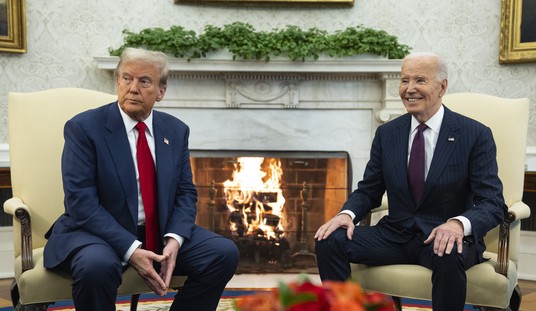A University of Kansas student isn’t going to be kicked off campus for anonymously tweeting about his ex. Kansas’ Court of Appeal ruled last week Navid Yeasin had every right to tweet profane language about his ex-girlfriend because he didn’t use her name. It’s a win for the First Amendment, but really on a technicality.
None of this conduct occurred on campus or at a University sponsored or supervised event. The Student Code, the rules by which the University can impose discipline upon its students, deals only with conduct on campus or at University sponsored or supervised events. We therefore hold that the University had no authority to expel Yeasin. We affirm the district court’s similar ruling and dissolve the stay order issued in this case.
There’s no doubt Yeasin is a bad actor based on initial reports of why his ex filed a complaint against him the first place. He’d been accused of going through her Facebook messaging to find out the ex was talking to another guy,refusing to give her phone back, driving her around town against her will, and threatening her. He was even issued a no contact order by University of Kansas telling him to not contact her. But Yeasin still has every right to complain about her on Twitter because he wasn’t threatening her. It falls in the category of free speech in the First Amendment. It doesn’t matter whether her name was mentioned or not (which it wasn’t). But that’s not what a university investigator believed (comments censored due to language).
Yeasin acknowledged understanding the no-contact order as meaning he was not to contact W. and stated, “‘the twitter thing was a lapse on my part.'” Yeasin expressed that it had not occurred to him that a tweet would be a violation of the protection order or no-contact order and that he had not intended his tweets to reach W. Yeasin stated that he did not post any other tweets about W. after receiving the September 6, 2013, email from Brooks. Yeasin did admit to posting the August 8, 2013, and August 23, 2013, tweets and confirmed they were both about W. However, he claimed that the September 7, 2013, tweet using the hashtag “crazy—–” referred to someone else, not W., and that only the hashtag “#crazy—ex” or “#psycho” would be referring to W. Yeasin acknowledged that the 6 August 8, 2013, tweet might have been referring to W.’s “‘spine thing'” and that he knew W. had gotten breast implants and had inherited a rib cage deformity but claimed that the September 13, 2013, tweet was not about W., her medical issues, or her surgery. Yeasin told McQueeney that he would not tweet anything that could be perceived as being directed at W. and he recognized doing so was a violation of both the protection order and the no-contact order
It’s important to remember this isn’t law enforcement telling Yeasin to stop what he’s doing, but a university administrator. The university thought Yeasin was harassing his ex, even though her name was never mentioned and his tweets weren’t being done on campus. One administrator told Yeasin it was obvious his behavior was affecting the ex’s on campus life, even though Yeasin never had contact with her again. It’s here where KU violates their own rules in the Code of Student Rights (emphasis mine and the court’s).
Art. 22 Conduct of Students and Organizations
“Students . . . are expected to conduct themselves as responsible members of the University community. While on University premises or at University sponsored or supervised events, students and organizations are subject to disciplinary action for violations of published policies, rules and regulations of the University and Regents, and for the following offenses: . . . .
It should be noted KU changed their policy to include off campus activity, but the judges didn’t take the new rules into account because they happened in November 2014 after the situation involving Yeasin. The judges ruled the university screwed up because of how it decided to enforce its own rules.
The trouble is, the Student Code did not give the University authority to act when the misconduct occurred somewhere other than its campus or at University sponsored or 14 supervised events. There is no proof in the record that Yeasin posted the tweets while he was on campus.
Through every step of the disciplinary proceedings, the University relied on Article 22 of the Student Code as the basis for Yeasin’s discipline. But, on appeal, the University cherry-picks a small phrase from Article 20 to argue that it did indeed have the authority to expel Yeasin for his actions in Johnson County during the summer and for his tweets in violation of the no-contact order.
Here’s where the case gets interesting because University of Kansas thinks Title IX affects off campus behavior, but Kansas State University does not. This shows the problem with the Title IX rules and how they can or cannot be applied in certain circumstances. Washington Examiner’s Ashe Schow has been really focused on the Title IX problems and thinks reform needs to happen sooner rather than later.
And therein lies the problem. The process schools must follow under Title IX is fundamentally unfair and needs to be changed to provide students with the same due process rights they would have in a criminal trial. After all, sexual assault is a crime.
It is more realistic to reform Title IX than it is to repeal it, or even — at this point, anyway — to require schools to hand such investigations over to the police. Sexual assault is a serious matter, and it needs to be treated as such — that means treating it like the crime that it is, and that means both taking accusers seriously and providing protections for accused students who stand to have their lives ruined by a process that is currently designed to do just that.
Schow’s piece also points out Title IX was originally written to keep discrimination from happening but is now focused on parity. This is why it’s important to get the government out of education. It’s rules like this which turn universities from places of learning to places of sensitivity. The quickest way to get the government out of education is not just to cut off all funding, but to get the federal government out of the student loan business. This will probably take time because of how reliant universities are on federal cash. The way to do this is to gradually taper off funding from about $37B to zero in a period of probably six-to-seven years. This would give the universities plenty of time to find new funding, probably from boosters which already prop up the athletic departments or by simply getting rid of programs they don’t need. Of course, when has Washington ever shown willingness to cut spending? Either way, it needs to be done and soon. If the lunacy over Title IX and “trigger warnings” keep going, it’s going to make things worse, not better, on campus and more students are probably not going to be prepared for life outside college.








Join the conversation as a VIP Member